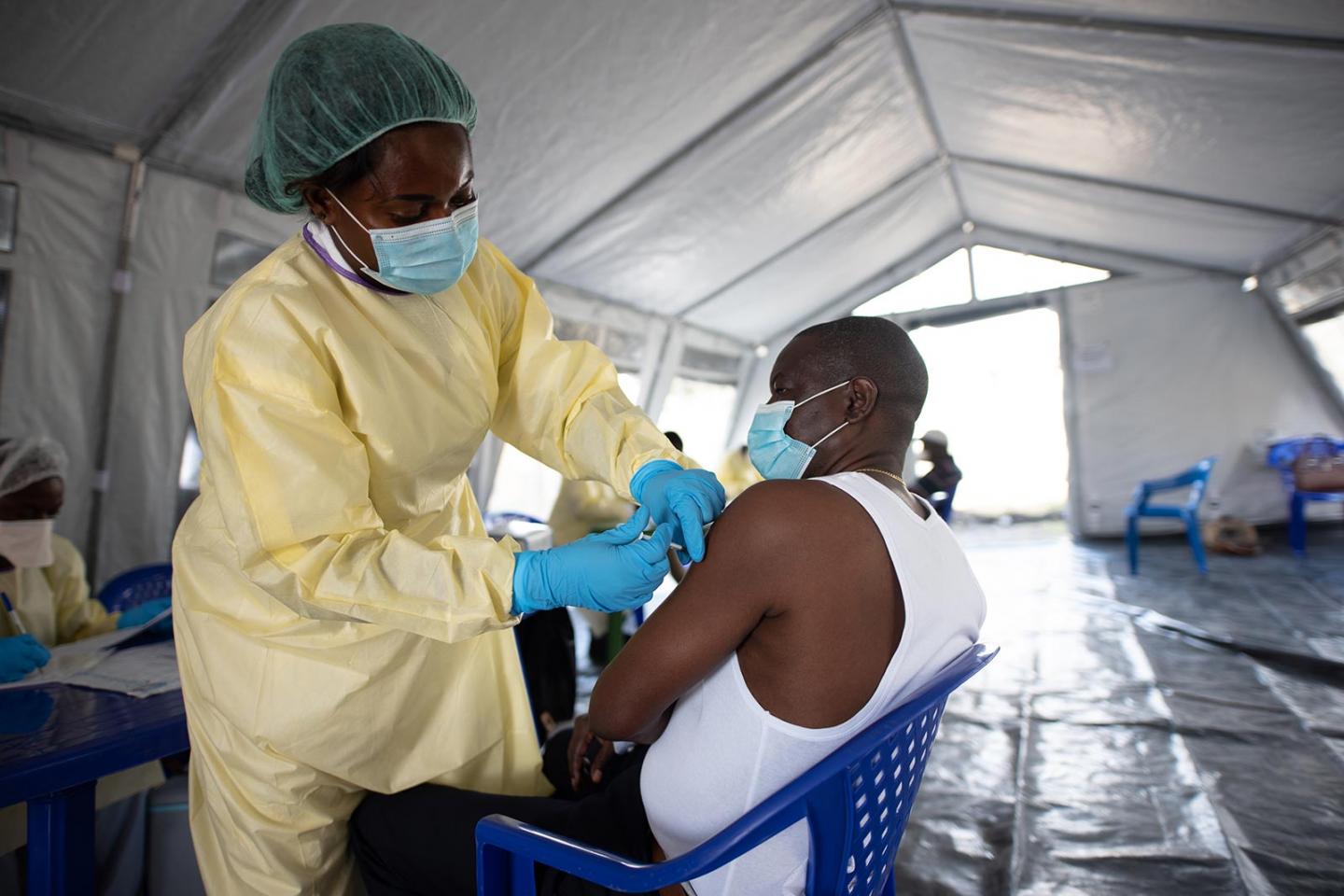
Dose-sharing: how global solidarity can help curb the pandemic
UNICEF, 28 May 2021
The daily news from India is another stark reminder that we have a long road ahead of us in efforts to end the pandemic. But India, despite facing the highest daily case count ever recorded by any country during the pandemic, is not alone. Many countries are struggling to cope with new and deadlier waves of COVID-19, where health systems are being pushed to the brink of collapse as hospital space and essential supplies run low. While the crisis extends through India, alarm bells are ringing elsewhere and warn of a devastating surge of cases and deaths.
Less than 1% of all vaccines have been administered in low-income countries and globally cases of COVID-19 are increasing, with variants an increasing threat to progress. Although COVID-19 vaccine demand surpasses available supply across the world, there are enough doses available to reach the world’s most vulnerable populations right now. In fact, many high-income countries have already vaccinated more than half of their populations and reserved enough ‘future’ doses from manufacturers to vaccinate their entire population many times over.
This has led to growing calls for these high income countries, with surplus vaccine doses, to start donating vaccines to others in immediate need. Importantly, we now have new data which indicates that the G7 countries could donate 20% of available vaccines to COVAX now, without any significant delay in current plans to vaccinate their adult population. Analysis also shows that these donations could make 1 billion doses available to vaccinate the most vulnerable people by the year end. Well supplied countries should donate now and commit to release extra doses to be procured in the future. This is not just an act of kindness or solidarity – it is the fastest, fairest, and a future-proof route to recovery, because no one is safe until everyone is safe.
Why donations are crucial right now
There are immediate and obvious benefits to dose sharing. By increasing the speed and scale of vaccine coverage globally, dose sharing can help limit the spread of COVID-19 and prevent new variants from emerging. These mutations have the potential to spread globally even in countries where relatively higher immunization coverage has been achieved.

While dose sharing has little to no impact on the vaccination targets of some high-income countries, it could help resumption of life-saving services in other low- and middle-income countries.
It allows countries to vaccinate their frontline health care workers without delay. This not only protects them, but the health systems the most vulnerable in society depend upon. Although vaccine supply is a major challenge, doses that are currently available are concentrated in the hands of too few. Dose sharing is a rapid way of closing the immediate supply gap. While it is a short-term solution for countries to quickly access COVID-19 vaccines, it is lifesaving to health care workers and vulnerable populations in low-income countries – and can prevent health systems from falling into crisis.
“If countries have pre-ordered vaccines or are saving them for a rainy day, we need them to donate to the COVAX Facility where they can be equitably distributed now,” said Gian Gandhi, COVAX Coordinator at UNICEF Supply Division. “We can’t afford to have a world where quality-assured vaccines are not reaching those most in need. Dose sharing on an equitable basis is the best remedy for vaccine nationalism.”
What can be done?
UNICEF calls on governments that have contracted more ‘future doses’ than required to vaccinate their entire adult populations this year to urgently loan, release or donate most or all excess doses for 2021 to the COVAX Facility immediately. This ensures vaccines can be allocated equitably to countries. In addition, countries with a sufficient, current supply of doses should consider donating at least 5% of their available manufactured doses right away, and commit to making further contributions on a continued, rolling basis throughout the year.

“Through the COVAX Facility, UNICEF is working with potential dose-sharing countries, and vaccine manufacturers, to deliver doses fairly to countries willing and ready to take them,” said Gandhi. “Just recently, France and Sweden donated doses to COVAX. However, speed is of the essence and we need more commitments now.”
For instance, within 24 hours of France signing its donations contract vaccines were on their way.
The COVAX Facility’s dose-sharing principles were developed to help guide countries in their support for equitable access to vaccines worldwide. However, there is a need for speed. We need more countries, especially the G7, to step forward right away if we are to curb the spread of COVID-19 and help ensure everyone, everywhere has access to lifesaving COVID-19 vaccines.
Original article here.